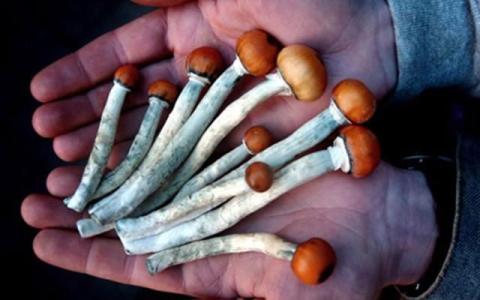Supporters of a 2018 ballot initiative to legalize psychedelic mushrooms in California were given the green light by the state attorney general's office earlier this month to circulate petitions and gather signatures.
They now have until April 30 to gather and submit 365,880 valid signatures from registered voters in the first state to ever legalize medical marijuana under Proposition 215 in 1996.
That ballot proposition, as well as Prop. 64 -- the 2016 voter initiative titled "The Adult Use of Marijuana Act" -- which legalized the sale and possession of marijuana for recreational consumption in California, were both bold democratic exercises in American federalism.
Federalism is a cornerstone of English Common Law and American political philosophy, and hardcoded right into the U.S. Constitution. It's the idea of shared political power and diverse political functions distributed among national, state, and local governments, and the people.
Although possession of marijuana is legally prohibited as an illicit narcotic under the Controlled Substances Act signed into law by Richard Nixon in 1970, California voters have asserted the state's legal prerogative to ignore Washington drug policy and decide for themselves what works best for their state.
The result has been no less than a political revolution in America over the last 20 years for increased state independence to determine drug policy via popular sovereignty.
As of 2017, 28 states and even the District of Columbia, the nation's capital, have followed California's example and defied federal law to broadly legalize marijuana for adult use in some form -- medical or recreational.
The constitutional case for state and popular sovereignty over drug policy seems rather compelling. In the Tenth Amendment of the Bill of Rights, the Constitution guarantees:
"The powers not delegated to the United States by the Constitution, nor prohibited by it to the states, are reserved to the states respectively, or to the people."
The power to prohibit commerce and consumption of intoxicating substances was widely understood by American lawmakers to fall outside those powers specifically enumerated to the United States in 1919 when a constitutional amendment (the 18th), rather than a legislative bill, was passed to prohibit commerce in the sale of "intoxicating liquors."
Yet the Controlled Substances Act from the Nixon era has remained in effect without being superseded by the federal judiciary because of an interpretation of the Commerce Clause in Article I, Section 8 of the Constitution that early 20th century jurisprudence clearly would have considered overbroad.
The assertion of state prerogative to remedy this apparent overreach of federal power has been astonishingly effective, and the effort has even won the support of federal policymakers in Congress, where it is now a yearly practice to earmark funds in the Justice Department's budget thusly:
“None of the funds made Available in this Act to the Department of Justice may be used, with respect to any of the States of Alabama, Alaska, Arkansas, Arizona, California, Colorado, Connecticut, Delaware, Florida, Georgia, Hawaii, Illinois, Iowa, Kentucky, Lousiana, Maine, Maryland, Massachusetts, Michigan, Minnesota, Mississippi, Missouri, Montana, Nevada, New Hampshire, New Jersey, New Mexico, New York, North Carolina, Ohio, Oklahoma, Oregon, Pennsylvania, Rhode Island, South Carolina, Tennessee, Texas, Utah, Vermont, Virginia, Washington, West Virginia, Wisconsin, and Wyoming, or with respect to the District of Columbia, Guam, or Puerto Rico to prevent any of them from implementing their own laws that authorize the use, distribution, possession, or cultivation of medical marijuana.”
The compelling state interest in overturning federal policy on both marijuana and psychedelic mushrooms is the overwhelming scientific evidence for their relative safety, non-dependency, and their value as medicine.
Mushrooms containing psilocybin have been shown to be effective in treating cancer patients suffering from anxiety and depression.
The other state interest is in the economics of the strong demand for these highly valued goods versus the high costs of police enforcement and interdiction, both in financial terms to state budgets, and the human cost of violence and crime associated with the black markets prohibition has created -- just as it did around liquor in the 1920s.
Like marijuana, which has been a financial boon for states that have legalized it, "magic" mushrooms would likely produce millions of dollars of tax revenue for the state of California, while reducing its cost by further millions.
Kevin P. Saunders, a mayoral candidate in Marina, who helped write the ballot proposition, says:
"We're very excited. We see this as a civil rights issue... Everything except actual money is coming our way. We're one big donation away from being able to do this."
Engaged voters and politicos will be watching with interest to see if the continuing revolution in drug policy and federalism will be able to score a ballot initiative to legalize psychedelic mushrooms in California in 2018.
